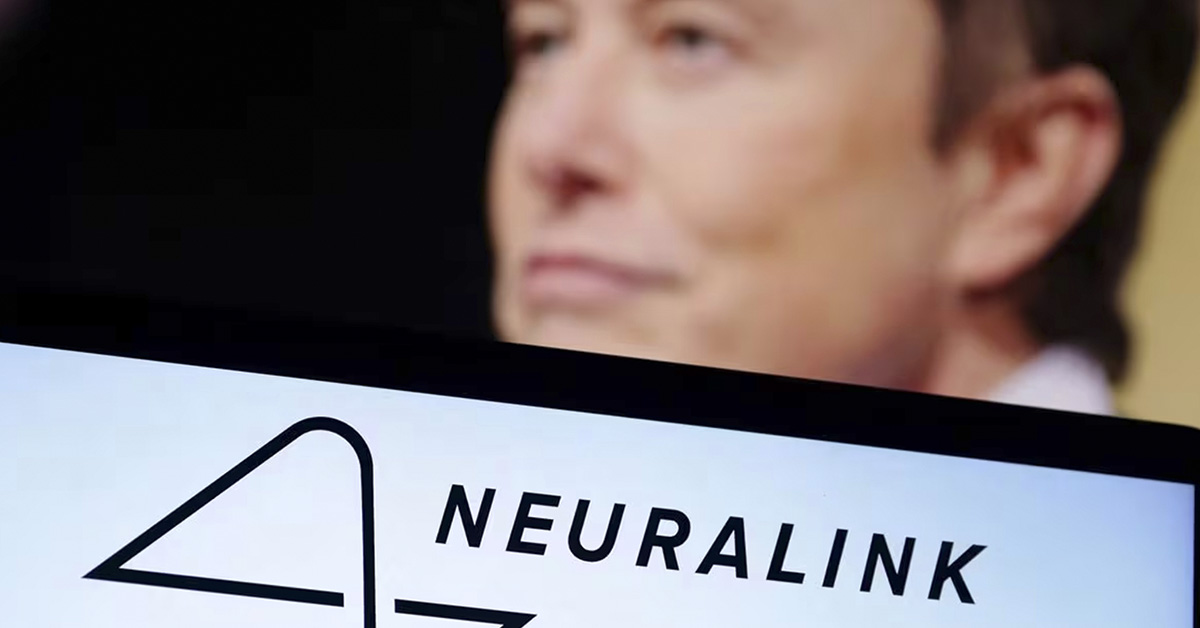In an incredible display of technological advancement, Elon Musk’s brain-chip startup Neuralink showcased its first patient using a brain implant to play online chess using just his mind.1 Noland Arbaugh, a 29-year-old who had been paralyzed below the shoulder from a diving accident, was able to maneuver his laptop cursor using just the Neuralink device.
Arbaugh, the first to receive Neuralink’s device, shared his experiences during both the procedure and the subsequent rehabilitation. An avid chess player before his accident, he expressed extreme gratitude for the opportunity to regain agency over tasks he thought were going to stay inaccessible to him forever. He stated, “I had basically given up playing that game… [Neuralink] gave me the ability to do that again and played for 8 hours straight”.
Neuralink Challenges and Insights
That said, Arbaugh did emphasize some ongoing challenges, remarking, “It’s not perfect…there’s still a lot of work to be done, but it has already changed my life”.
Obviously, this is a huge deal when it comes to medical and technological achievement. The ability to complete tasks without needing to move will have lasting implications in and outside of the medical world but for now, this is an incredible achievement.
Kip Ludwig, former program director for neural engineering at the U.S. National Institutes of Health, weighed in on the significance of Neuralink’s achievement. While cautioning against overstating the current capabilities as a “breakthrough,” Ludwig acknowledged the promising trajectory of the technology in enhancing patient autonomy.
“It is still in the very early days post-implantation, and there is a lot of learning on both the Neuralink side and the subject’s side to maximize the amount of information for control that can be achieved,”
Neuralink’s progress is happening inside a broader landscape of brain-computer interface (BCI) research. Dr. Nader Pouratian, chair of the Department of Neurological Surgery at UT Southwestern Medical Center, contextualized Neuralink’s milestone within the continuum of BCI development, emphasizing the long-standing efforts to decode neural signals for practical applications.2 “There are things that we’ve been able to do for decades, like control a cursor in two dimensions, which actually, for those of us who are in the field, is extremely simple to do as soon as you can get any brain signal,”
Regulatory Hurdles and Future Directions
Neuralink’s accomplishments within the scientific community has garnered attention, both good and bad. Concerns surfaced following reports of FDA inspection findings, indicating some deficiencies in record-keeping and quality controls for animal experiments. Dr. Marco Baptista, chief scientific officer of the Christopher & Dana Reeve Foundation, highlighted the importance of rigorous scientific reporting and peer-reviewed publications in substantiating the efficacy and safety of emerging technologies.
“I’m hopeful that this information will start to come out through these mechanisms that are needed in science, and that is through peer-reviewed publications,” Baptista said. “That hasn’t happened yet. Other companies are doing it.”
As Neuralink navigates clinical trials and regulatory scrutiny, the company seems ready to contribute substantially to neural engineering. Continued collaboration and transparency in research findings will be crucial if the company wants to foster trust and advance its BCI technology.
Neuralink’s live demonstration marks an exciting moment in neuroscience and technology. While challenges persist, immense promise exists in empowering individuals with neurological conditions. As the journey continues, we may one day find ourselves winning the battle against the machines with brain-computer interfaces of our own.
Read More: Tesla driver pulled over going 93 MPH while completely asleep
Sources
- “Musk’s Neuralink shows first brain-chip recipient playing online chess using only his mind.” Fast Company. March 21, 2024.
- “Neuralink shares video of patient playing chess using signals from brain implant.” CNBC. Ashley Capoot. March 20, 2024.

